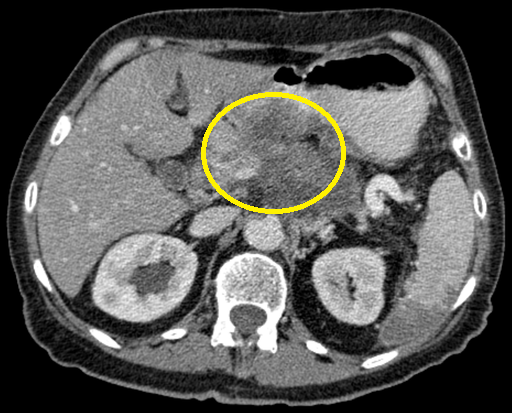
The UMC Utrecht is the teaching hospital associated with Utrecht University. It has more than 1,000 beds and more than 12,000 employees. The hospital is one of eleven trauma centers in the Netherlands. The UMC works together with hospitals in the region for the best treatment of various types of cancer.
content
The Challenge
In pancreatic cancer (pancreatic cancer), the early diagnosis of a recurrent tumor (recurrence) is crucial. However, it is difficult to distinguish surgical scarring from recurrence. Datacation was commissioned to develop an AI application that can distinguish these scars on CT scans from a recurrence and thereby support doctors in diagnosing.
The process
The domain knowledge of the medical specialists of UMC Utrecht has been supplemented with the technical expertise of Datacation. With the input of the specialists, Datacation was able to develop an algorithm that was able to segment the pancreas using self-supervised learning. This approach is particularly interesting since medical data is limited and self-supervised learning offers the solution. Using self-supervised learning, we trained a U-net based on the pixels on the CT scans. The algorithm first segments the pancreas. The next step is to make a classification that decides whether or not the tumor has returned.
The solution
Our AI application supports the medical specialists of UMC Utrecht in the early detection of pancreatic recurrences. In three months, the Datacation team has developed an algorithm that almost beats the Dice Score (baseline/benchmark in literature). This makes it a very valuable addition for detecting recurrences. We are therefore proud to be able to contribute to innovation in healthcare with our algorithm. The next step is to develop a classification algorithm that determines whether or not the tumor has returned.
